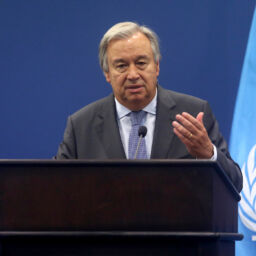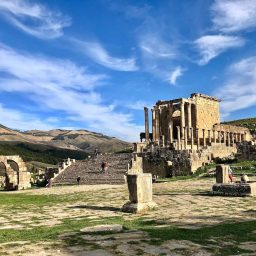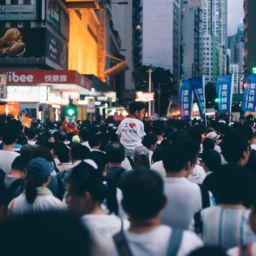West Africa’s security situation worsens with terrorist attacks and coups

At the end of May, the (5.28) African Union Leaders Summit was held in Equatorial Guinea. The summit held a special meeting, focusing on discussions on terrorism in West Africa and the coup d’etat in West African countries. At an extraordinary meeting of the ECOWAS Chiefs of Staff Committee in Ghana in early May, Ghanaian Defense Minister Nitivu also gave a briefing on the terrorism situation in West Africa.
Terrorism in West Africa is spreading outward, and many countries are on alert
Nitivu informed that over the past three years, there have been 5,306 terrorist-related attacks in West Africa, resulting in at least 16,726 deaths, thousands of injuries, and millions of displaced people. In the first three months of this year, there were more than 840 attacks in the region alone. Terrorist attacks in West Africa have occurred primarily in four countries – Burkina Faso, Mali, Niger, and Nigeria – and are spreading to coastal countries. These terrorist attacks are mainly divided into two types, one by the West African countries of homegrown extremist groups, and one by the Al Qaeda branch in African countries. The extremist groups in West African countries include Boko Haram in Nigeria, Ansar Dine in Mali, and MUJAO in West Africa. “Al-Qaeda affiliates include Al-Qaeda in the Islamic Maghreb (AQIM) and others.
Professionals pointed out that in recent years, under the situation of Western countries and West African governments jointly launched a severe crackdown on terrorist forces, terrorist organizations in West Africa have shown a trend of decentralization, polycentricity, cross-border, and co-occurrence. According to the “Armed Conflict Location and Data” project, in 2021, there is a marked spillover of terrorist activities in Africa. Idriss Lalali, acting director of the African Union’s Center for Counter-Terrorism Studies, said that the current terrorist threat is spreading at a frightening pace in Africa, especially the COVID-19 epidemic, which has exacerbated social turmoil, and terrorist groups are taking hostages, trafficking in people, recruiting members, and propagating terrorist and extremist ideology through the Internet.
Recent coups in West Africa have worsened the security situation
In spite of terrorism, frequent coups in West Africa in recent years and political instability in many countries have exacerbated the deterioration of the security situation in the region. Since the epidemic, coups have occurred in the West African countries of Mali, Guinea, and Burkina Faso one after another. Since 2020, six coups have occurred in the West African region, including two in Mali, one in Guinea-Bissau, one in Burkina Faso, one in Niger, and one in Guinea.
Frequent coups have led to heavy losses, the breakdown of public services in some areas, the displacement of large numbers of people, and widespread popular discontent. This has contributed to the growth of local instability.
Simultaneously, coups have led to a deterioration of relations between several countries in West Africa. ECOWAS and the African Union suspended the membership of the coup countries and would impose further sanctions such as suspension of flights and freezing of assets. In response to these pressures, the military governments of some of the coup-stricken countries have imposed matching sanctions on other ECOWAS countries and delayed their elections. These measures perpetuate the anarchy in these countries, which gives terrorism an opportunity to take advantage of it.
The security situation has deteriorated for a variety of reasons
First, from the perspective of national conditions, West African countries have a large population, a wide variety of ethnic groups and religions, and are generally in the stage of transition from traditional to modern societies, with weak governmental governance capacity. In the long-term political turmoil and religious and ethnic conflicts, terrorist organizations and extremist forces have taken advantage of the situation to expand their sphere of influence.
Second, in terms of economic and social development, the West African region is rich in oil and gas and mineral resources, but there is a serious imbalance in resource allocation and an extremely serious division between the rich and the poor. Rapid population growth and disorderly urbanization have led to the inability of the general public to receive an adequate education, the inability of society to provide sufficient jobs and fair development opportunities, and the inability of weak urban infrastructure to carry a large influx of people. The basic survival and development rights of the grassroots are difficult to be guaranteed, and many people lack trust in the government and are prone to turn to support terrorist camps or stage coups.
Third, in terms of the regional and international situation, as many governments in West Asia and North Africa region have increased their counter-terrorism efforts in recent years, a large number of terrorist forces have shifted to West African countries, which are unable to cope with the proliferation of cross-border activities of terrorist organizations. Abdul Basit, a researcher at the UN Center for the Study of International Political Violence and Terrorism, pointed out that the socio-economic pressure caused by the epidemic has forced Western and West African governments to reallocate resources, and the increase in deficits and public spending has led them to reduce their budgets on non-priority issues such as counter-terrorism, including cutting funding for related programs and halting or reducing international security assistance.
West African Countries Call for Greater Cooperation in Combating Terrorism and Coups
In light of the current security situation, leaders of several West African countries have held several meetings to discuss countermeasures and call for increased cooperation in the fight against terrorism and coups d’état.
At the summit of AU leaders that just ended last week, Angolan President Lorenzo said that whenever there is a coup, whether or not there is bloodshed, the relevant regional organizations and the African Union must meet as a state of emergency to take the necessary measures to ensure a swift return to normal order in the country, and asked countries to strengthen control of their borders to prevent the creation of an environment in which terrorism can flourish.
Ghanaian Defense Minister Nitivu called on West African countries to strengthen intelligence sharing, closely monitor the dynamics of militants in the border areas, and take concrete actions to combat all types of crimes.
UN Secretary-General Guterres also said that the UN will work with West African countries to address the threat of terrorism; and that the international community should look at West Africa’s security from a holistic, symbiotic and developmental perspective. The international community should not connive at the emergence of unstable factors in the region for selfish interests, thus affecting the common development of West Africa and the world.
By Shiyue Luo















